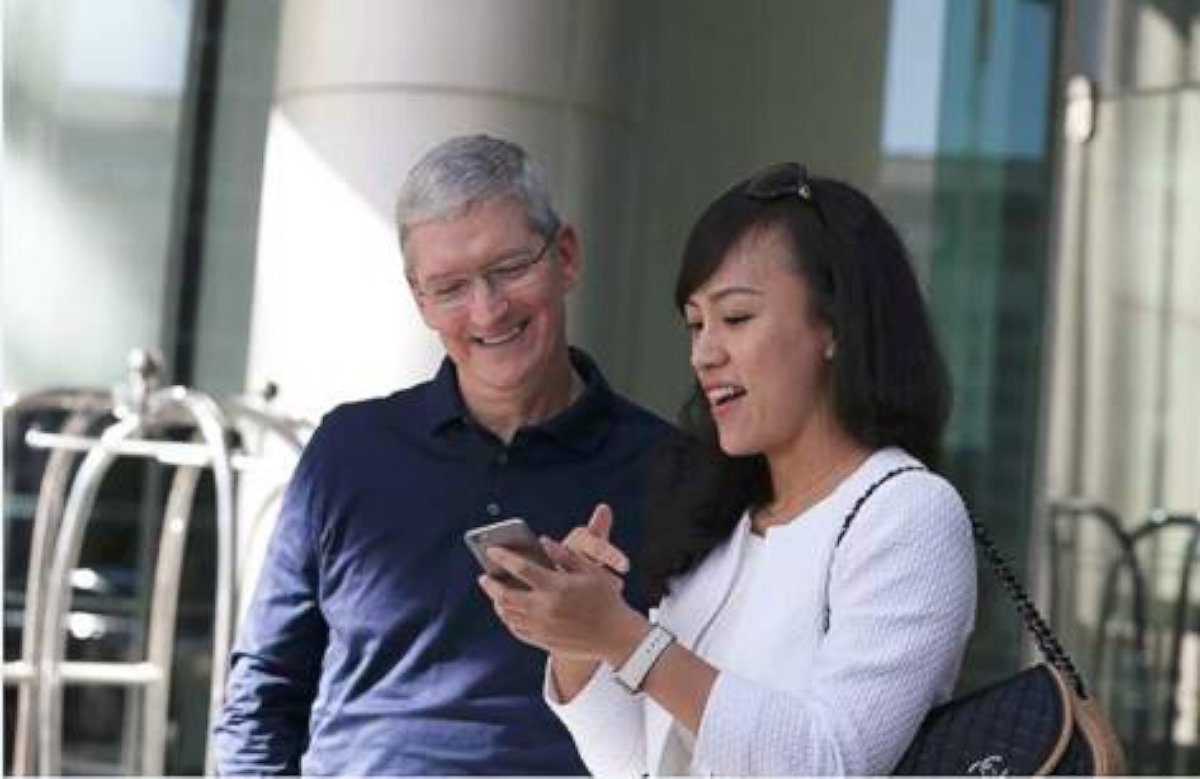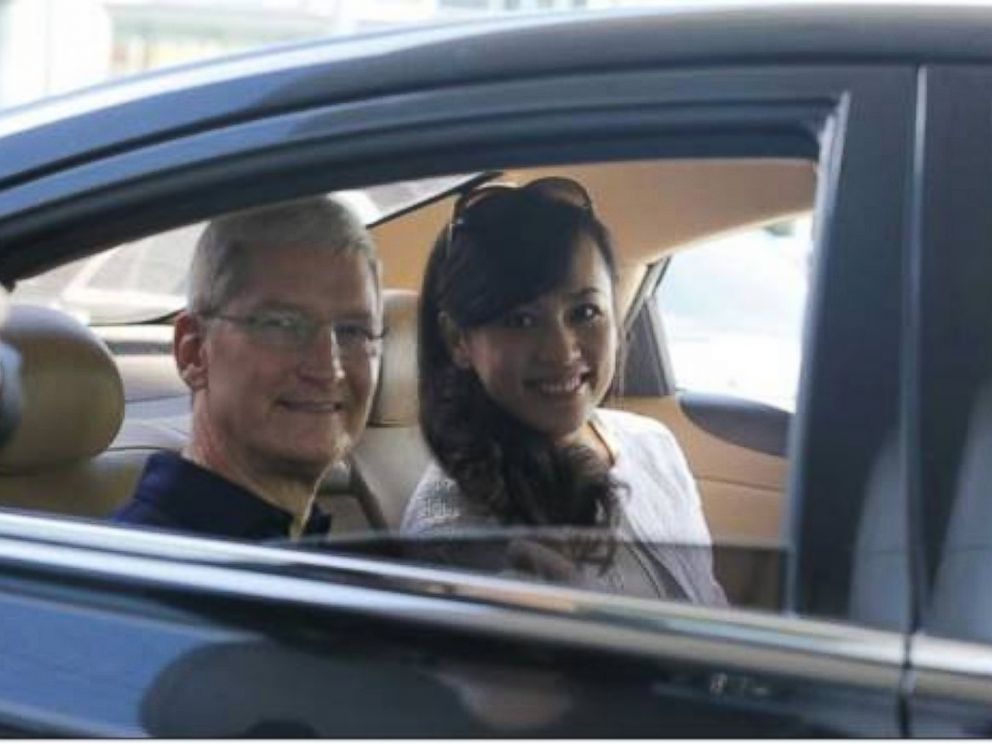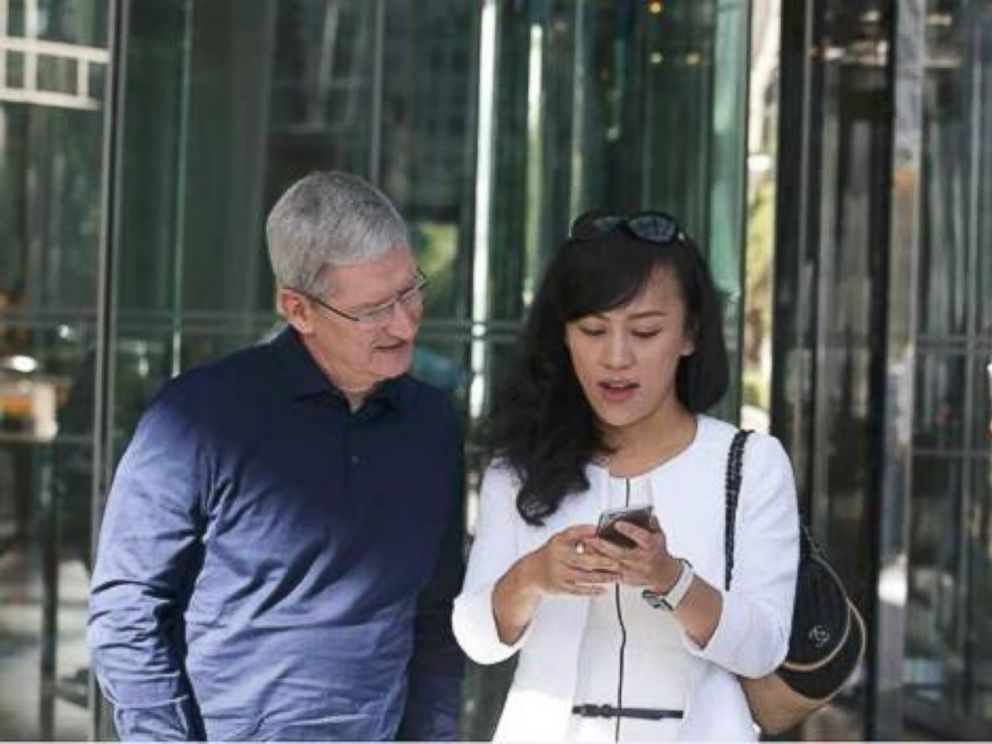Apple CEO Tim Cook Hails Taxi During Chinese Publicity Push
Cook arrived in China after the iPhone maker's investment in Didi Chuxing.
— -- Apple CEO Tim Cook took a taxi ride with Uber's major competitor in China today as the iPhone maker continues making an aggressive push into Asia.
Photos show Cook hailing a taxi with Didi Chuxing, the company in which Apple invested $1 billion last week. Cook rode in a car with Didi Chuxing President Jean Liu to a panel of Chinese app developers at the Apple Store in Wangfujing, Beijing.
“Apple invested in Didi last week. We are very proud of that investment," Cook said Monday in Beijing. "Didi has 14 million drivers, 300 million users, actually 300 million and one now, because Jean and I took a Didi ride here this morning."
Didi Chuxing is China's largest taxi-hailing app, and may be at least five times the size of Uber in China, according to Stifel analyst George Askew. Didi Chuxing was previously called Didi Kuaidi. "Didi" refers to the sound of a car horn, and "Chuxing" means "mobility" in Chinese, according to a representative. "Kuaidi" is a combination of the Chinese characters for "taxi" and "quick," according to VentureBeat.

Askew believes Apple's investment is "the first of many transactions whereby Apple uses its checkbook to acquire minority stakes in interesting mobile products and services in China that have audience and monetization strategies," according to a research note last week.

Asia may be a guiding light the future for Apple, which reported its first-ever decline in revenue and iPhone sales last month. Earlier this month, Apple asked the Indian government for permission to sell refurbished iPhones in that country.

"Both India and China are extraordinarily large and fast-growing in contrast to the saturated and slow-growing markets in Europe and the United States," said Barry Bosworth, of the Brookings Institution. "Asia is the most promising economic region for consumer-based firms."
Bosworth said that's particularly true for the high-tech sector, which already produces in Asia.
He said Apple's move to develop a positive image in those markets is a "smart" strategy for Apple, as the company is already largely an Asian firm on the production side. Tech companies are seeking the approval of India's government under Prime Minister Narendra Modi, who visited Silicon Valley last September.
In January, Apple said it had asked the Indian government for approval to open retail stores and sell products online there directly.
Anja Manuel, author of "This Brave New World: India, China, and the United States," said Apple is right to make India a real focus. India already has nearly as many smartphone users as the U.S., and will likely have more by the end of 2016.
Manuel said the Indian government seems to be doing its part to help Apple succeed. The government reportedly recommended that Apple should be allowed to open its iconic retail stores, even though Indian regulations normally require that companies source 30 percent of materials locally.
The issue of polluting, toxic e-waste is a sensitive one in India, since several other countries dump their electronic waste in India, Manuel said. Apple has touted in its 2016 environmental report that it's working with over 160 recyclers around the world, and the company has kept more than 597 million pounds of equipment out of landfills since 1994.
Apple supplier Foxconn, based in Taiwan, is also reportedly making inroads in India. Last year, an Indian official said Foxconn plans to spend $5 billion on factories in the western Indian state of Maharashtra, according to the Wall Street Journal.
"These are all signs of the Modi government trying to become more friendly to outside investors," Manuel said.



